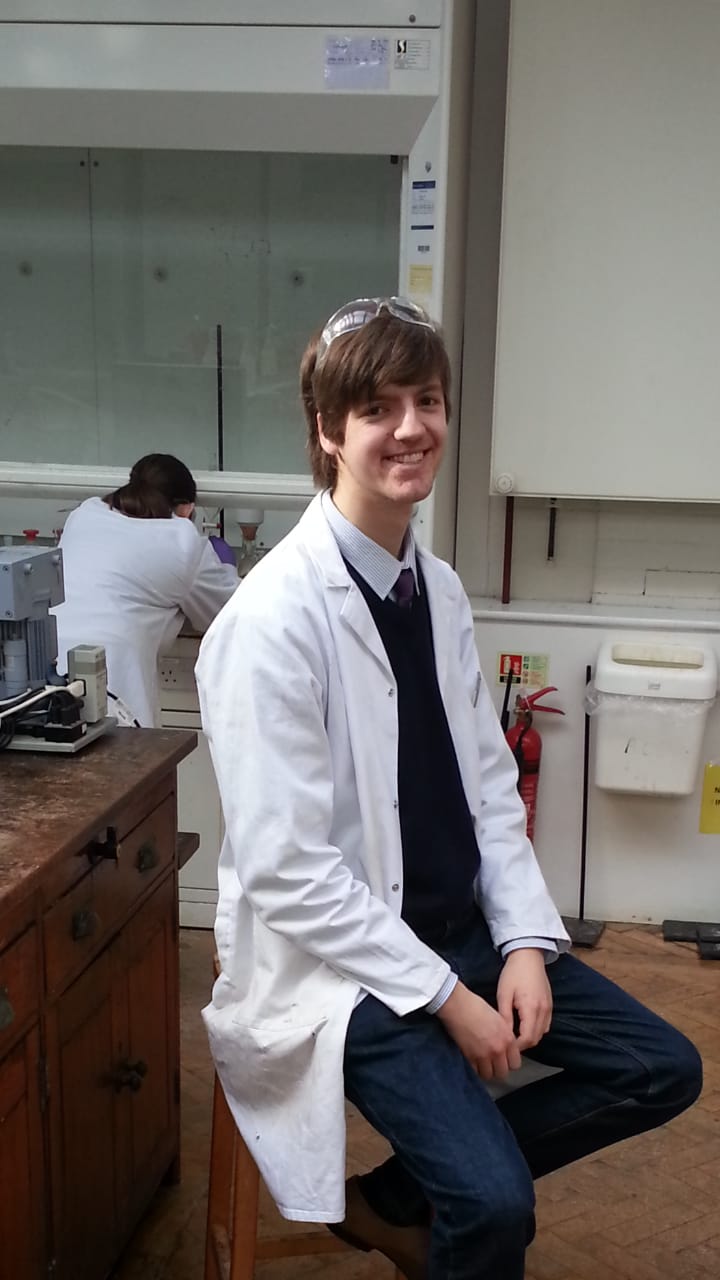 Chemistry is a practical science, so like any other skill or technique, practice is the only way to get good at the practical side to my degree. Teaching labs are required by the department to pass the qualification, but they only last up to six hours whereas I've found that it's more rewarding when you can plan for several days of experiments, many of which need to be left on overnight or for several days.
Chemistry is a practical science, so like any other skill or technique, practice is the only way to get good at the practical side to my degree. Teaching labs are required by the department to pass the qualification, but they only last up to six hours whereas I've found that it's more rewarding when you can plan for several days of experiments, many of which need to be left on overnight or for several days.
I am one of many students reading Chemistry that truly love the subject and just want more exposure to the discipline. Every summer there are many undergraduates in the department who seek lab time, either in Oxford or elsewhere in larger chemical companies. Oxford’s chemistry department, like many academic departments around the country, is constructed of discrete research groups each of whom are funded either by private funds, or in the most part by research grants by the government, EU or any charitable foundations. These groups all have a research interest in a particular field, which can be loosely classified into Organic with Biological chemistry, Inorganic and Physical with Theoretical chemistry. Like several of my peers, I applied to many research groups in the Organic division, which interests me the most. Synthetic Organic chemists look for ways of making complex organic molecules that usually have biological applications. Other synthesis groups are involved with developing new methods of making organic compounds, which is what the Fletcher group is concerned with. These lab places are quite competitive, as fume hood space is limited, the building is at capacity and Oxford students are not the only undergraduates applying for lab projects. In a nearby group there were summer students from America.
Prof Stephen Fletcher agreed to take me on to help some PhD students with making starting material. Much of the methodology research that the Fletcher group does involves precursor chemicals that either cannot be bought or are cheaper to make, so starting material synthesis is a large part of the day-to-day running of the lab. I worked with three PhD students, each working on different projects, two involved with Ruthenium and Copper catalysis to make difficult to produce compounds, and one that was using copper chemistry in a synthesis project. Each student was very helpful and took a lot of time to train me in various practical techniques and to ensure that I was confident in undertaking various syntheses required. By end of my time with the group I could do everything I needed to do quicker, more confidently and importantly more competently than six weeks before. One of the DPhil students trusted me to process a few of his reactions independently too.
I absolutely loved my time in the lab, and I would regularly still be there at 7 or 8 in the evening, still running reactions and columns quite happily. I’ve enjoyed working in a research lab so much that I have asked the group for work in my spare time during term next year, which could happen depending on work commitments. This experience has assured me that I wish to stay in Chemistry, to do a PhD (or a DPhil as we call it in Oxford) if possible and perhaps beyond.
By Tim Jenkins (Third Year Chemist - formerly of Northgate High School)
Read more about Chemistry at Brasenose.
